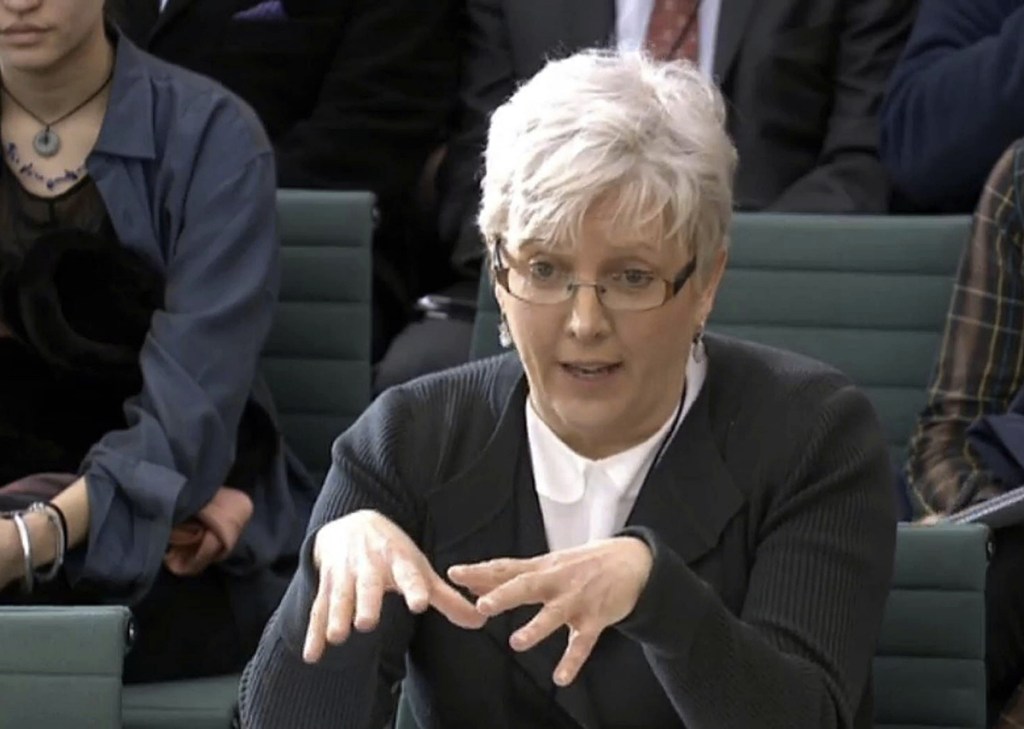LONDON — Less than a month after she sensationally resigned her post as the BBC’s China editor, journalist Carrie Gracie appeared before British lawmakers Wednesday and explained the circumstances that led to her departure in protest over unequal pay.
She said she was “shocked” to discover that her male peers earned “at least 50 percent” more than she did. “My case is just an example of a bigger problem,” she told a parliamentary select committee investigating pay equality at the BBC. “If BBC can’t sort it out for me – for me, a senior person of 55, in a powerful position – how can it sort it out for more vulnerable people who don’t have a public profile?”
The BBC, the largest and arguably best-known public broadcaster in the world, has been rocked by a monthslong controversy over its pay culture.
What happens at the BBC matters. The corporation is so much a part of the fabric of British society that some call it simply “Auntie.” It’s also a publicly funded broadcaster – financed largely through an annual license fee of $208 – and it is subject to bouts of political scrutiny and self-flagellation.
On Tuesday, the BBC published an audit of salaries paid to employees who appear on the air, carried out by PricewaterhouseCoopers. The auditors found a 6.8 percent gender pay gap but reported that there was “no gender bias” regarding pay decisions.
The report added that there were “anomalies that need addressing” at the BBC, including a lack of transparency over how it pays its staff.
A group of BBC women who have been campaigning for equal pay dismissed the report as a whitewash, adding that they were not consulted on its scope or methodology. “This report has reached the conclusion the BBC wanted it to reach,” said Jane Garvey, one of the BBC’s leading presenters.
Ahead of Wednesday’s hearing, a group of 170 women at the BBC said in written testimony submitted to Parliament that some women had received “veiled threats” when they raised the subject of equal pay.
Since last summer, 230 people have raised pay grievances against the corporation.
Copy the Story LinkSend questions/comments to the editors.



Success. Please wait for the page to reload. If the page does not reload within 5 seconds, please refresh the page.
Enter your email and password to access comments.
Hi, to comment on stories you must . This profile is in addition to your subscription and website login.
Already have a commenting profile? .
Invalid username/password.
Please check your email to confirm and complete your registration.
Only subscribers are eligible to post comments. Please subscribe or login first for digital access. Here’s why.
Use the form below to reset your password. When you've submitted your account email, we will send an email with a reset code.